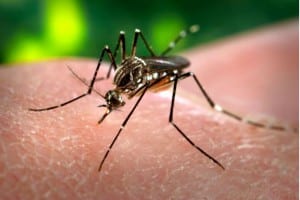Do you love to travel to new places, explore new cultures and different peoples around the world? Me too, I love it!
As the news keeps reporting about the Zika virus, it’s normal that couples ask questions about the issue before deciding to travel to certain areas. Especially if they want to conceive a baby or when they’re already pregnant. I’m happy that you’re reading this entry to keep up with the latest information concerning this epidemic. It has been spreading around the world since 2015.
It’s important to clarify that an infection with the Zika virus can affect everyone. For babies on their way or planned for, it’s not just about the woman or the pregnant woman. It also involves men, future fathers. Read on to see what I mean.
History
The Zika virus isn’t new. It was discovered in the 1950s, almost 70 years ago. It was first discovered in Uganda then across Africa and Asia. However, since 2013 the virus has spread quickly with a significant outbreak in Brazil and Colombia in 2015. We can now find it in many Latin and South American countries and even the US (Florida, Texas) which has alarmed health authorities into action.
You should also know that there is a Zika virus transmission potential in neighbouring warm regions for areas that have indicated local transmission, even if cases haven’t already been discovered. This is why you always need to take precautions to prevent an infection.
While it has been noted that the number of declared Zika cases in certain countries widely affected by the virus has declined, it doesn’t mean that the infection is over. This is more to do with the fact that many people have already been infected and they’re now immune, but the risk remains for travellers. We don’t currently know if a person who has already been infected can be reinfected…
Why is Zika found in some countries but not in Quebec or Canada?
Good question! Zika needs temperatures of between 22 and 27 Celsius for 15 consecutive days to develop and requires a certain altitude. Quebec summers and climate aren’t ideal for the spreading of this virus. However, it’s possible that the Zika virus could transform, mutate as we have seen with other viruses. In this sense, North America won’t always be sheltered.
The Zika Virus Infection
The Zika virus infection can be serious during pregnancy. While 80% of the population infected with Zika will never have symptoms, it seems based on the latest research that this is different for pregnant women.
Here are the main Zika symptoms:
- Flat red skin rash covered with small bumps which is often itchy, feeling of itchiness under the skin.
- It often spreads from the face to the body (90%).
- Eye redness (conjunctivitis) (55%)
- General symptoms, including:
- Weakness
- Headaches
- Vomiting
- Bloated appendages
- Lack of energy
- Short-term muscle and joint pain (65%).
- Possible joint bloating, especially in hands and feet
- Low fever (38.5 C or less) (65%)
It normally takes 3–12 days after infection for the symptoms to appear. These symptoms are generally benign, not serious and last for 2–7 days. You can deal with them with acetaminophen, rest and drinking fluids.
Zika is diagnosed based on the symptoms and travel history or recent activity in high-risk zones. Based on the situation, your health professional will prescribe additional lab tests (blood, urine, immunoglobulin) as needed. Not everyone is tested but if the doctor believes there is a risk due to the pregnant woman’s history, or a woman who would like to become pregnant, they will prescribe tests for them and their partner.
What can happen to a pregnant woman or a woman who wants to become pregnant when they’re infected?
The Impact of the Zika Infection during Pregnancy
A Zika infection is not serious for the general population. But it is risky for a pregnant woman even if they don’t have symptoms because the virus enters the placenta. This virus can impact the baby’s in utero development and cause congenital malformations such as:
-

Microcephaly (smaller brain) Microcephaly (smaller brain);
- Brain anomalies (Guillain-Barré, which is a deficiency, paralysis of certain nerves, or other neurological problems such as stiff joints);
- Ocular anomalies;
- Hearing problems;
- And even in utero death of the fetus.
Longer term, late development and learning problems are possible.
Currently, it’s difficult to attribute specific risks to each pregnant woman, but based on a study in 2016, 1% of newborns infected during the first trimester of pregnancy will have microcephaly. In 5–15% of infected newborns, other impacts mentioned above will occur.
The Transmission of the Zika Virus
 The transmission of the Zika virus generally occurs from two species of infected mosquitoes found in warm tropical climates. Mosquitoes that transmit Zika will bite both during the day and at night. It can also spread by:
The transmission of the Zika virus generally occurs from two species of infected mosquitoes found in warm tropical climates. Mosquitoes that transmit Zika will bite both during the day and at night. It can also spread by:
- A pregnant woman to their fetus if pregnant during infection;
- A pregnant woman to their fetus during conception within two months following potential exposure in a zone affected by the Zika virus (mother-baby transmission is possible, even if conceived after exposure);
- The sperm of a male infected for a prolonged period (sexually transmitted even within six months following potential exposure in a zone affected by Zika);
- A blood transfusion;
- Also, in rare cases: saliva, sweat, urine or breast milk. Cell, blood and organ donations from infected donors can also transmit the virus.
Zika generally remains in the blood of an infected person for about one week. Currently, there is no proof that the virus:
- Will infect the fetus conceived after the virus was eliminated from the infected woman’s blood;
- Poses a risk for congenital anomalies during future pregnancies.
How can you prevent the virus and protect yourself during pregnancy?
Knowledge about the Zika epidemic allows us to protect ourselves better. Also, the World Health Organisation monitors cases around the world and publishes information so that travellers can get the latest news before deciding about travel to certain countries.
Vaccines or medications to treat Zika aren’t currently available. Only the symptoms are treated.
Researchers are working to develop a vaccine that will provoke an immune system response in humans to counter the current epidemic.
Official Recommendations for the Zika Virus
Official recommendations for the Zika virus are many. Travellers to tropical or subtropical regions should protect themselves against mosquito bites for several different viruses—Zika, malaria, West Nile, dengue, yellow fever, chikungunya.
If you’re planning to travel while pregnant or just before you’re planning on becoming pregnant, you should take these precautions:
- Consult your doctor or a Santé-Voyage clinic at least six weeks before your trip for preventative measures to take;
- Pregnant women and those who want to become pregnant must AVOID all travel to countries in regions labelled “risk zones” for the Zika virus. If the trip can’t be cancelled or postponed, you must use serious protection measures for mosquito bites;
- Travellers must protect themselves from mosquito bites at all times (read on for suggestions and means to use);
- Don’t have unprotected sexual contact. Always properly used condoms and avoid having sexual relations when you travel in zones where mosquitoes propagate the Zika virus. Use a condom for three months after your return, or throughout the pregnancy if your spouse is already pregnant.
Protection Measures for Insect Bites
There are many ways to protect yourself from insect bites. Here are suggestions from the Government of Canada to better protect yourself from bites from mosquitoes infected with Zika. From this list of precautions, in case of pregnancy, you must request products specifically recommended for you from your health professional.
1) Cover up:
Wear long-sleeved pale coloured shirts tucked into your pants, shoes (avoid sandals) and a hat. In places infected with ticks, you can also close your pant legs with tape or tuck them into your socks, your shoes or your boots.
2) Apply repellent to your exposed skin:
- In Canada, DEET- or icaridin-based repellents (also known as picaridin) are the most effective.
- Follow the manufacturer’s indications.
- Make sure the products are approved before using them on children, and avoid applying repellents to their hands.
- Don’t apply repellents to irritated skin, cuts and scrapes.
- Avoid spraying repellents directly on the face.
- Wash your hands after application to avoid contact with lips and eyes.
- It’s not recommended to use products that include both a repellent and sunscreen.
- However, if you use sunscreen and a DEET-based repellent, first apply the sunscreen and allow it to absorb into the skin for about 15 minutes before applying the repellent.
- If you travel to regions where the risk of insect-borne illnesses is high, reapply the repellent as needed. If a mosquito bites you and the duration indicated on the label hasn’t expired, it’s recommended to apply a fresh layer of repellent.
- If you minimize the amount of repellent used, apply it during the times of day when insects are most active and when you are more likely to be exposed.
- Stay in places where openings have screens or in closed air-conditioned spaces.
- Avoid staying in dwellings made of mud, adobe or peat (sticks or plant leaves used for the roof).
4) Sleep under a mosquito net which has been treated with insecticide:
- Ensure that the mosquito net is intact (no rips).
- Tuck the mosquito net under the mattress.
- Make sure that the net doesn’t touch you (if not, you can be bitten through the net).
- Use the net to protect young children when they’re in a baby crib, cradle or stroller.
5) For better protection, apply permethrin-based repellents to your clothes and other travel accessories.
- Permethrin isn’t sold in Canada, but Santé-Voyage clinics can tell you how to buy it or pre-treated materials before your travels.
- Treating clothing with permethrin is effective for several washes.
- If you treat your clothing yourself, please follow the product’s instructions attentively.
- Avoid spraying permethrin directly on your skin.
The Return Home
For travellers returning from countries in Zika risk zones, you should:
- For pregnant women, if you develop symptoms that could be associated with Zika, you should see your health professional.
- For women who want to become pregnant, it’s strongly recommended that you use condoms or avoid unprotected sexual relations for at least two months before trying to conceive. This ensures that any possible Zika infection is eliminated from your body. However, if you become pregnant within this period, consult your health professional and tell them about your recent trip and the exact place you stayed. If you have travelled in a high-risk zone with your partner, see the additional precautions you should take on return specifically associated with them.
- For male travellers, Zika can remain in the infected person’s sperm for a prolonged period, up to six months after infection, so:
- It’s strongly advised, if you have a pregnant partner, to use condoms or avoid sexual relations during the pregnancy.
- It’s strongly recommended that you wait six months before you and your partner try to conceive a child. Use a condom correctly or avoid having sexual relations.
- It’s suggested that you use condoms or avoid having sexual relations with anyone for six months.
- If you have an illness or serious medical condition before your trip, see your health professional after your return to avoid serious symptoms that could occur after a potential Zika infection.
- Wait at least 21 days after your trip before donating blood. Also, wait six months before donating sperm.
For more information, you can consult the Public Health Agency of Canada’s website for travel and health/safety advice.
I think I have provided you with an in-depth update about the information concerning the Zika virus for pregnant women and the general population. I hope this information can help and guide you to the right resources when preparing your trip to ensure it’s safe for you and your baby, either expected or planned.
Marie Fortier
The Baby Expert




